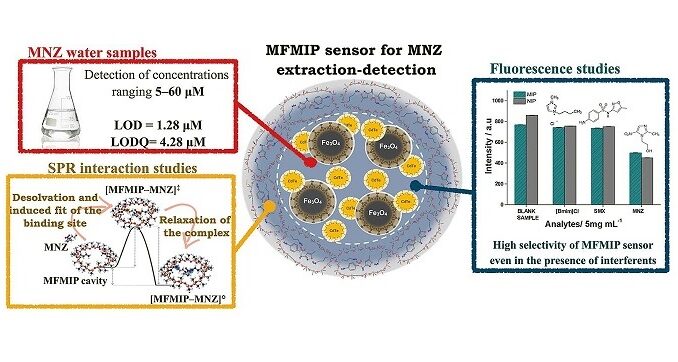
Brazilians create sensor to monitor levels of widely used antibiotic in water and food
Researchers at the Center for Development of Functional Materials (CDMF) describe in the Journal of Molecular Liquids the development of a sensor that detects metronidazole in organisms and the environment. Metronidazole is an antibiotic used in human and veterinary medicine. Accumulation of this drug in the body can result in various health problems, and levels in blood, water, meat, and milk, among others, need to be monitored.
The sensor combined magnetic fluorescent multi-functional molecularly imprinted polymers (MFMIP) with a non-imprinted reference composite. Tests on water samples showed good sensitivity and practical advantages, such as the possibility of real-time analysis and ease of handling.
The first and last authors of the article are Laís Mendes Alvarenga and Luciano Sindra Virtuoso. The other co-authors are Cristiane dos Reis Feliciano, Bruno Giordano Alvarenga, Hauster Maximiler Campos de Paula, Yara Luiza Coelho, Luís Henrique Mendes da Silva, Luiz Fernando Gorup and Mariane Gonçalves Santos.
More information: Laís Mendes Alvarenga et al, Preparation of a composite sensor based on a fluorescent and magnetic molecular imprint polymer for metronidazole extraction–detection, Journal of Molecular Liquids (2023). DOI: 10.1016/j.molliq.2023.123027

